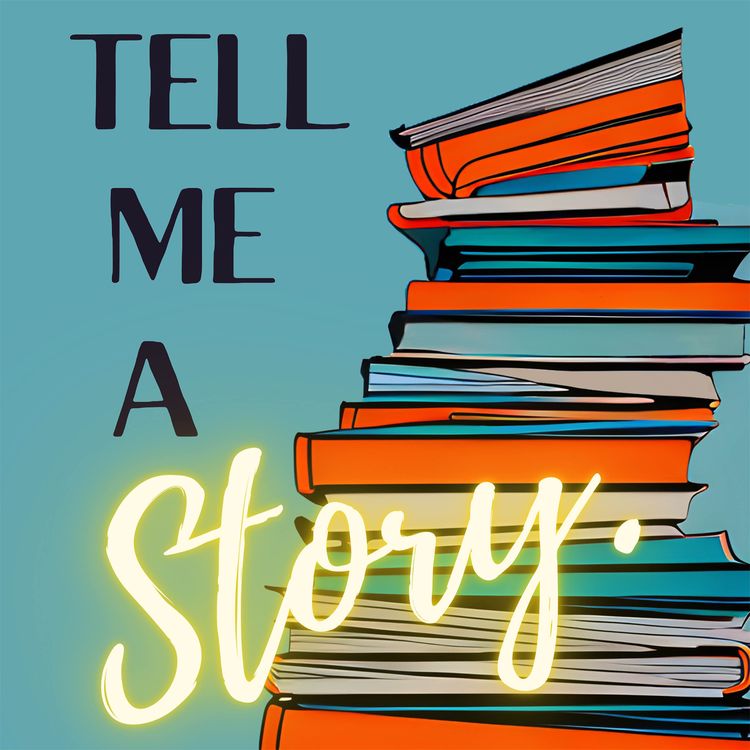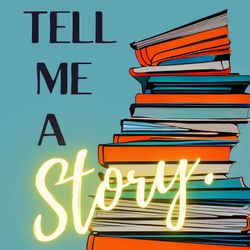Share

Tell Me a Story
Existential Isolation...Press Play to Escape Discussion
In this discussion episode, Dr Scott Jones and Dr Dina Rasolofoarison discuss "Press Play to Escape" with Professor Finola Kerrigan and Dr Jack Coffin.
Scott discusses his work with Dr James Cronin and Professor Maria Piacentini. The panel also discuss two previous academic articles on 'solo consumption'. First is Ratner and Hamilton's "Inhibited From Bowling Alone". The second is McCamley and Morland's "Lone not Lonely".
Nietzsche's book, Thus Spoke Zarathustra, is also discussed as the traditional archetype of solitude, against which streaming is a quite different experience.
Finally, when discussing stories the panel agree that traditional articles do not always allow full stories to be told. Scott mention Stephen Brown's metaphor of characters being 'steamrolled' into flat accounts. Professor Brown's literary works provide a tonic to the traditional scientific style of marketing theories, and his new editorship of the Journal of Customer Behaviour is now an outlet for more creative pieces.
More episodes
View all episodes

1.1. Happy Christmases Are All Alike;
34:23||Season 1, Ep. 1.1This episode is a dramatic reading of Vivien Blanchet's "Happy Christmases are All Alike", a story that teaches us the real (mythic) meaning of Christmas through the protagonist's repetitive correspondence with Santa. Each year brings new challenges, yet Santa's consistent letters provide reassurance... or do they? Thank you to Rob Ward for lending his voice to this project.
1.2. Happy Christmases Are All Alike... Discussion
48:28||Season 1, Ep. 1.2This episode accompanies the story "Happy Christmases Are All Alike; Each Unhappy Christmas is Unhappy in its Own Way." In this discussion the author, Dr Vivien Blanchet, talks to Dr Teea Palo, about the myth of Christmas and its relationship to marketing, markets, and consumer culture. Further Reading Teea’s research on Santa: Palo, Teea, Katy Mason, and Philip Roseo (2018), “Performing a Myth to Make a Market: The construction of the ‘magical world’ of Santa,” Organization Studies, 41 (1), DOI: 10.1177/0170840618789192 Vivien mentioned Marcel Mauss, further reading below: Arnould, Eric J. (2017) “Marcel Mauss: The Gift that Moves…” in Canonical Authors in Consumption Theory, Edited by Søren Askegaard and Benoît Heilbrunn, Routledge. Arnould, Eric J. and Alexander S. Rose (2015), “Mutuality: Critique and Substitute for Belk’s “Sharing”,” Marketing Theory, 16 (1), DOI: 10.1177/1470593115572669 Vivien also mentioned Roland Barthes, further reading below: Visconti, Luca M. (2017) “Ronald Barthes: The (Anti-)Structuralist,” in Canonical Authors in Consumption Theory, Edited by Søren Askegaard and Benoît Heilbrunn, Routledge. And finally, Latour’s Paris Ville Invisible was noted as an example of visual research…Latour, Bruno and Emilie Hermant (2006) Paris: Invisible City, English translator Liz Carey-Libbrect.
2.2. Grave Goods Discussion
45:50||Season 1, Ep. 2.2This discussion accompanies "Grave Goods".Here the author, Emeritus Professor John F. Sherry Jr., explores the motivations for, and lessons from, with short story with Professor Stephanie O'Donohoe.Further ReadingJohn Sherry has published several poems. He has also written academic articles advocating for the benefits of poetry. He also mentioned Stephen Brown's new creative journal, JCB, and the special issue on "Presenting Marketing Differently", guest edited by Tim Hill and Jack Coffin. He mentioned Latour's We Have Never Been Modern and neo-animism, which Eric Arnould has recently written about. Finally, the work of Clifford Geertz was discussed, highlighting how reality can be written in many different styles.Stephanie O'Donohoe has written about death in relation to caring parenthood, consumer storytelling, and end of life consumption. She also mentioned The Year of Magical Thinking by Joan Didion.
2.1. Grave Goods
29:18||Season 1, Ep. 2.1"Grave Goods" is a vibrant story about grief. Oxymoronic though it sounds, this tale teaches us that loss and its aftermath vibrates with the flows and frictions of many interacting parts. Death is not an empty void but, rather, a cornucopia of commodities and connections...
3.1. The Voice Inside
27:17||Season 1, Ep. 3.1The story in this episode delves deep within, addressing complex and somewhat difficult issues with care and creative flair. A tale for present and future parents, biological or adoptive. It is also a tale for those with no plans to parent, but carrying a desire to better understand the embodied experience of embryo markets.
3.2. The Voice Inside Discussion
01:03:45||Season 1, Ep. 3.2In this discussion the author, Dr Jennifer Takhar, talks through key themes with Dr Lucy van Der Wiel and Dr Merve Emre. Further ReadingFor more on the nature/culture divide and how it is (re)constructed through consumer culture, see Canniford and Shankar’s (2013) paper and later (2016) book chapter. There was a special plug for the Special Issue, “Presenting Marketing Differently”, by Dr. Tim Hill and Dr. Jack Coffin. Lucie’s work was mentioned a several points. The concept of “consumer sovereignty” was mentioned multiple times. There are many studies on this topic, but Mark Tadajewski provides a useful primer. Feminists have also reflected on the consumer-as-sovereign trope – for instance, Mark Tadajewski in collaboration with Pauline Maclaran, or Shona Bettany’s reflections. Merve's edited volume “Once and Future Feminist” was mentioned, as was the Netflix Series “Master of None”.The work of Barbara Stern was mentioned as a very significant contribution to the ‘literary’ tradition within marketing and consumer research, using literary criticism as a method to deconstruct consumer culture but also as a means to convey marketing ideas. Many papers could be cited, but her feminist literary criticism of advertising is one starting point. Stephen Brown’s paper “Bow to Stern” was also mentioned, providing an excellent analysis and application of Stern’s legacy. Finally, the expert panel mentioned several texts toward the end of the discussion: “My Body in Weeks” by Heather Anderson; “Mothers as Markers of Death” by Claudia Dey; Mieko Kawakami’s “Breasts and Eggs” (Chichi to Ran in Japanese).
4.1. Existential Isolation…Press Play to Escape
29:24||Season 1, Ep. 4.1This story is about isolation - or, is it? Starting with a lonesome cinema-goer and passing through a home streaming binge, this story questions the boundaries of solo and collective consumption. Thank you to Rob Ward for lending his voice to this project.
5.1. A Heteronomous Consumer Romance
22:41||Season 1, Ep. 5.1A dystopian science fiction story imagining marketing in the near future. This story touches on themes of imagination, marketplace relationships, digital and virtual consumption, AI and market/ politics systems. The listener is invited to reflect on the sorts of dominating human-technology-market relationships that may be with us soon, and on the risk of perverse instantiations in commercial AI deployment.